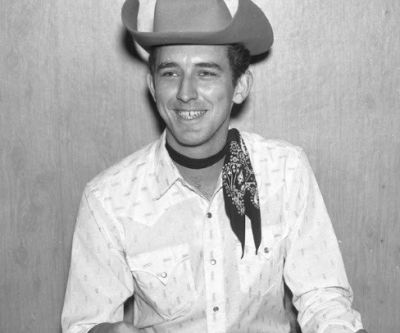December 20, 2018
Tuesday
8:00 p.m.
Minneapolis, MN
Test schedule
A live performance with Robin and Linda Williams at the Cedar Cultural Center
May 20, 2018
Sunday
3:00 p.m.
Lexington, MA
Lexington, MA
A live performance at the Saenger Theatre
April 10, 2018
Tuesday
8:00 p.m.
Tulsa, OK
Tulsa, OK
A live performance at the Brady Theater
March 17, 2018
Saturday
8:00 p.m.
Long Beach, CA
Long Beach, CA
A live performance at the Carpenter Performing Arts Center
March 15, 2018
Thursday
7:00 p.m.
Mobile, AL
Mobile, AL
A live performance at the Saenger Theatre
“The Schoolboy” by William Blake, from Songs of Experience, 1794. Public domain. (buy now)
I love to rise in a summer morn,
When the birds sing on every tree;
The distant huntsman winds his horn,
And the skylark sings with me:
Oh, what sweet company!
But to go to school in a summer morn, —
O it drives all joy away;
Under a cruel eye outworn,
The little ones spend the day
In sighing and dismay.
Ah then at times I drooping sit,
And spend many an anxious hour;
Nor in my book can I take delight,
Nor sit in learning’s bower,
Worn through with the dreary shower.
How can the bird that is born for joy
Sit in a cage and sing?
How can a child, when fears annoy,
But droop his tender wing,
And forget his youthful spring?
O father and mother, if buds are nipped,
And blossoms blown away;
And if the tender plants are stripped
Of their joy in the springing day,
By sorrow and care’s dismay, —
How shall the summer arise in joy,
Or the summer fruits appear?
Or how shall we gather what griefs destroy,
Or bless the mellowing year,
When the blasts of winter appear?
Today is the beginning of the dog days of summer, 40 days of especially hot and humid weather with little rainfall, according to the Farmers’ Almanac. The name came from the ancient Greeks. They believed that Sirius, the “dog star,” which rose with the sun at that time, was adding to the sun’s heat. They also believed that the weather made dogs go mad. The Romans tried to appease Sirius by sacrificing a brown dog at the start of the dog days. For the Egyptians, the arrival of dog days marked the beginning of the Nile’s flooding season, as well as their New Year celebrations.
“Dog days” has been adopted by the stock market because the markets tend to be slow and sluggish; it’s also come to mean any period of stagnation or inactivity.
It’s the birthday of M.F.K. Fisher(1908) (books by this author), born Mary Frances Kennedy in Albion, Michigan. She’s the mother of the “food essay” and always viewed cuisine as a metaphor for culture. She grew up in Whittier, California, and met her future husband, Alfred Young Fisher, at the University of Southern California in 1929. They spent the first three years of their marriage in Dijon, France, and she referred to that period as the “shaking and making years in [her] life.”
She found an Elizabethan cookbook at her public library, and was inspired to try her hand at food writing. Her first book, Serve It Forth (1937), was full of sensual, evocative prose and some critics assumed a man had written it. Her 1941 book, How to Cook a Wolf, was addressed to Americans and Europeans dealing with rationing and food shortages during World War II. In it, she wrote, “When the wolf is at the door one should invite him in and have him for dinner.” It has a few recipes, but it mostly contains meditations on the role of meals in relationships, and on sharing limited resources with spiritual abundance. Her chapter titles include, “How to Distribute Your Virtue,” “How to Greet the Spring,” “How to Be Cheerful Through Starving,” and “How to Have a Sleek Pelt.”
Author Anne Lamott wrote the introduction to an edition of Fisher’s letters. “Hers was a face anyone would naturally want in the kitchen, a combination of fresh peach and aged potato,” Lamott wrote. “You could see the weight and warmth and softness of her cheeks — the tender part a mother would cup in her hands — now grown so old.”
On this date in 1863, the Battle of Gettysburg ended. The battle, which began as a small skirmish but ended up involving 160,000 Americans, was a Northern victory, and though the war would continue for almost two more years, Gettysburg marked a turning point as the last major strategic offensive led by the South.
The last Confederate charge of the battle was led by Major General George Pickett, who led 12,500 troops up Cemetery Hill to their obliteration. Half of his forces didn’t survive the charge. Over the three-day battle, casualties — including dead, wounded, and captured — were between 46,000 and 51,000. Nearly 8,000 men and 3,000 horses were killed outright, and they had to be buried or burned quickly. There was only one civilian casualty: Jennie Wade, who was hit by a stray bullet that passed through her kitchen wall and killed her while she was baking bread.
In 1913, on the 50th anniversary of the battle, survivors reunited at Gettysburg. Fifty thousand veterans traveled to the reunion; the youngest was reported to be 61, and the oldest was 112. The reunion culminated with Confederate survivors walking the path of Pickett’s charge, to be met by the handshakes and embraces of their former Union adversaries over the dividing stone wall. President Woodrow Wilson, whose father had been a Confederate chaplain, spoke to the reunion on July 4, saying: “These venerable men crowding here to this famous field have set us a great example of devotion and utter sacrifice. They were willing to die that the people might live. But their task is done. Their day is turned into evening. They look to us to perfect what they have established. Their work is handed to us, to be done in another way but not in another spirit. Our day is not over; it is upon us in full tide.”
And on this day in 1938, on the 75th anniversary of the battle, almost 2,000 veterans — with an average age of 94 — attended another reunion. President Franklin Roosevelt dedicated the Eternal Light Peace Memorial, which commemorates the 1913 reunion and reconciliation, and he said: “Lincoln spoke in solace for all who fought upon this field; and the years have laid their balm upon its wounds. Men who wore the Blue and men who wore the Gray are here together, a fragment spared by time. They are brought here by the memories of old divided loyalties, but they meet here in united loyalty to a united cause which the unfolding years have made it easier to see.” On the front of the memorial, these words are carved: “Peace Eternal in a Nation United.” The flame can be seen from a distance of 20 miles.
Today is the birthday of playwright Tom Stoppard (books by this author), born Tomas Straussler in Zlín, Czechoslovakia (1937). His first professional ambition was to be a journalist, and so he got a job with The Western Daily Press and, later, The Bristol Evening World, and wrote about a variety of things, from features to a humor column. He passed about six years this way, until he started working as a drama critic and fell in love with the theater. He began writing plays himself in 1960, producing a couple of one-act plays and writing for television and radio.
He had his first major theatrical success in 1966, with Rosencrantz and Guildenstern Are Dead. It’s the story of Hamlet, but told through the eyes of two very minor characters whose lives only achieve significance through their involvement with the story of the Danish prince. It was first performed at the Edinburgh Festival, and was staged by the National Theatre in 1967; Stoppard, at 29, was the youngest playwright to have a play at the National Theatre. Rosencrantz went to Broadway that same year, and when he was asked what the play was about, he said, “It’s about to make me rich.” Stoppard won his first Tony Award for Rosencrantz. He’s won four more since then, and many other awards, including an Oscar for Best Original Screenplay, for Shakespeare in Love (1998).
It’s the birthday of the writer Franz Kafka, (books by this author) born in Prague (1883). A writer associated with doom and gloom, the word “Kafkaesque” has come to mean absurd, dreamlike, and even sinister. In a letter to his fiancée, Kafka wrote: “The life that awaits you is not that of the happy couples you see strolling along before you in Westerland, no lighthearted chatter arm in arm, but a monastic life at the side of a man who is peevish, miserable, silent, discontented, and sickly.” He had sexual anxiety, and felt inferior to his father. And it is easy to summarize his life as tragic: He only published a few short stories during his life and never finished any novels (besides his novella Metamorphosis); he had a few love affairs, but was never married; and then he died at the age of 40 from tuberculosis.
But there are some cheerful elements to Kafka’s life story. For one, he was a competent and dedicated employee of an insurance agency, the Workers’ Accident Insurance Institute. He started there in 1908 and worked there steadily for 14 years, compensating injured workers. He had a good salary, worked six-hour work days, from 8:00 a.m. to 2 p.m. and worked his way up over the years. He kept records, wrote letters and articles, dealt with statistics, assessed his own business and others, processed claims, and represented the organization as a lawyer. Kafka himself tended to dismiss his work when he talked or wrote about it. But he showed up every day, and he wrote up the official annual reports, and was apparently proud of them because he sent copies to his family and friends. His friend the writer Max Brod wrote a biography of Kafka, and he wrote: “I spoke to one of the head officials who once worked with Kafka. Franz Kafka, so the gentleman told me, was popular with everyone; he hadn’t a single enemy.”
Kafka also had a great, even obsessive, respect for health and physicality. There is much made of Kafka’s time in coffee houses, but no evidence that he ever drank coffee himself, and he did not drink alcohol at all. He slept with his window open all the year round, always in fresh air, did calisthenics every evening at exactly 7:30 p.m., and he liked all sorts of exercise. He wrote in his diary in 1910: “I row, ride, swim, lie in the sun. Therefore my calves are good, my thighs not bad, my belly will pass muster, but my chest is very shabby.”
And Kafka’s last love affair, with a 25-year-old woman named Dora Diamant, seems to have been a happy one. They met at a Baltic resort, where she was working in the kitchen. He entertained her by performing shadow puppets on the wall, and he read aloud to her. They played together and teased each other. He wanted to marry her, but her father refused, on the grounds that Kafka was not an Orthodox Jew. They were only together for a year before he died of tuberculosis. Dora said later, “Everything was done with laughter,” and, “Kafka was always cheerful. He liked to play; he was a born playmate, always ready for some fun.”






